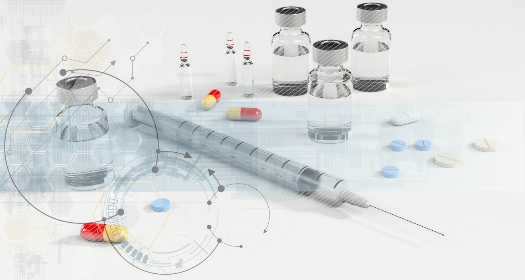Sarah HardingApril 02, 2020
Tag: API , Supply chain , Viral
It has been estimated that as much as 80% of APIs used by pharma manufacturers in the US originate from China or India. Therefore, the recent trade dispute between the US and China, which saw each country impose tariffs on hundreds of billions of dollars’ worth of each other’s products (including drug products, active ingredients and excipients), have significantly affected not only the Chinese producers, but also US firms relying on these materials. With the so-called "phase one" deal signed in January this year, China committed to boost US imports by $200 billion above 2017 levels and strengthen intellectual property rules, while the US agreed to halve some of the new tariffs that it had imposed on China. It was widely hoped that this deal would mark the beginning of the end of the bitter trade battle that has engaged the world's two largest economies since 2018, as well as better links in the global supply chain.
However, these hopes did not consider the coronavirus and the impact that it might have on supply chains going forward. In the past couple of months, the coronavirus has begun to cause significant disruption to pharma supply chains. Unfortunately, its impact is being felt at a time that – thanks to the very coronavirus blamed for the disruptions – healthcare systems across the world are being placed under unprecedented pressure.
Core to the disruption was the lock-down in China earlier this year. As much of China shut down for over a month in efforts to control the spread of the virus, office workers were encouraged to work from home, but many manufacturing plants simply had to close. China made the brave decision to pause its economy to tackle the coronavirus but, as the world watched, few observers probably realised how much the rest of the world might also suffer as a result. In fact, the virtual shutdown of the world’s second largest economy has hurt businesses around the globe. Of particular relevance to the pharma industry, the coronavirus outbreak in China has led to marked disruptions in the manufacture and supply of drug products, active ingredients and excipients.

At the end of February, the US FDA was reported to have identified 20 products or ingredients that are exclusively manufactured in China and could go into shortage, although at the time of writing this article no such shortages have been formally reported. This has been attributed largely to the fact that most manufacturers hold several months of inventory, buying enough raw materials to last several months at a time, so any shortages might not be immediately apparent. Indeed, by the time any shortages are apparent, those manufacturing plants in China might be fully functioning and a lot of shortages might even be avoided altogether. (Let’s hope so!)
As well as manufacturing plants having to close, distributors have struggled to maintain supply chains in the face of inaccessible supply chain partners – both upstream and down. As countries across the world roll out their own lock-down procedures in an attempt to slow the spread of the virus, more and more people are having to work from home. For some this will not be a problem, but for many – for example, in sales and distribution – such seclusion prohibits interactions that are broadly seen as basic requirements to do their jobs efficiently… at least, to do their jobs efficiently in the conventional way. As travel restrictions prevent customer-facing meetings, and the cancellation or delays of numerous trade shows – from DCAT Week ’20 to CPhI Japan – impact their ability to do business in the conventional way, the day will be won by teams willing to embrace new approaches. From video conferencing and chat-bots, to a variety of social media, we have an array of technology at our fingertips, and surely it can all be used to help us through this difficult time.
Disruptions in China have affected many medical supplies manufacturers’ abilities to make key ingredients and, as the coronavirus makes itself felt across the world, many businesses will be impacted. It is too late to offer advice about securing several months of inventory, or finding alternative local suppliers of key materials. Moreover, this situation cannot have been predicted, so no blame should be laid on any companies that did not secure such an inventory before the coronavirus outbreak. Perhaps the best we can do now is to ensure channels of communication are open, and that the supply chain is kept open and moving for as many products as possible.
Author biography

Sarah Harding, PhD
Editorial Director of Chemicals Knowledge
Sarah Harding worked as a medical writer and consultant in the pharmaceutical industry for 15 years, for the last 10 years of which she owned and ran her own medical communications agency that provided a range of services to blue-chip Pharma companies. She subsequently began a new career in publishing as Editor of Speciality Chemicals Magazine, and then Editorial Director at Chemicals Knowledge. She now focusses on providing independent writing and consultancy services to the pharmaceutical and speciality chemicals industry.
-----------------------------------------------------------------------
Editor's Note:
To become a freelance writer of En-CPhI.CN,
welcome to send your CV and sample works to us,
Email: Julia.Zhang@imsinoexpo.com.


Contact Us
Tel: (+86) 400 610 1188
WhatsApp/Telegram/Wechat: +86 13621645194
Follow Us:




 Pharma Sources Insight January 2025
Pharma Sources Insight January 2025


